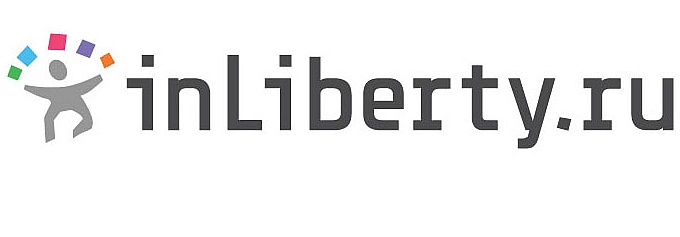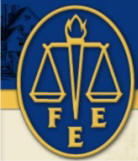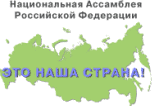|









 Áëîã Àíäðåÿ Èëëàðèîíîâà Áëîã Àíäðåÿ Èëëàðèîíîâà





 








ãîðèçîíòû ïðîìûøëåííîé
ïîëèòèêè
ÈÐÈÑÝÍ
|
ÃÐÓÏÏÀ ÂÎÑÜÌÈ (ÁÎËÜØÀß ÂÎÑÜÌÅÐÊÀ)
The Death of the Democratic Club
The Moscow Times,
Tuesday, April 18, 2006
By Andrei Illarionov
The Rambouillet Declaration of 1975 defines what would become the Group of Eight as the club of the largest, industrially developed, democratic countries of the world. This definition is reasserted in the traditional communiques produced at each of the annual summits.
The organization's 30-plus years of existence have confirmed the criteria required for membership: a democratic political regime; a large economy; a high level of economic and institutional development; a convertible national currency; membership in the WTO, OECD and IEA; and dedication to the goals and principles of international cooperation.
Meeting some, but not all, of these criteria is not enough to join -- even if a country has additional special features. By the size of their populations, China and India surpass all the G8 members taken together. China 's gross domestic product, in purchasing power parity terms, is greater than that of all the club's members except the United States . China , India and Pakistan have nuclear weapons. Saudi Arabia is the largest supplier of oil on world markets. But none of these features makes them members of the world's most exclusive club.
Russia today meets only one of the G8's criteria: the size of its economy. In 2005, its GDP in terms of purchasing power parity was 10th in the world. Although this ranking falls below that of China , India and Brazil , non-members of the group, it is still higher than 13th-ranked Canada , a member of the G8. Measured in exchange-rate terms, Russia's GDP in 2005 was 13th in the world, 50 percent lower than Canada's and lower than non-members China, Spain, Brazil, South Korea and India.
Russia does not meet any of the G8's other criteria for membership. The Russian ruble is not freely convertible for capital operations. Russia is not a member of the WTO, OECD or IEA. This is why Russia does not participate in the group's discussions of exchange rates and international trade issues.
Russia is not an economically advanced country. Russia 's per capita GDP in purchasing power parity terms is 33 percent of the G7 average, or 69th in the world. Calculating GDP with exchange rates reduces Russia 's GDP per capita to 15 percent of the G7 average. Average annual inflation rates over the past five years place Russia 161st out of 180 countries.
Since 2005, Russia has ceased to be a politically free country. According to Freedom House's index of political rights, Russia is 168th out of 192 countries. Transparency International's corruption index places Russia 126th out of 159 countries. The World Economic Forum calculates that Russia is 85th (among 108) in the use of favoritism in government decisions, 88th (also among 108) in its protection of property rights and 84th (among 102) when measured by the independence of the judicial system.
A Different G8
If one were to form a group of countries whose levels of economic, institutional and political development corresponded most closely to those of Russia today, it would have a rather different list of members. By per capita GDP, Russia is closest to Saudi Arabia , Botswana , Venezuela , Uruguay , Thailand , Mexico and Oman . If one were to use average inflation rates over the past five years, Russia would find itself in the company of Mozambique , Guinea , Iran , Nigeria , Eritrea , Haiti and Venezuela . Partners in levels of political non-freedom would include Chad , Iran , Iraq , Pakistan , Oman , Rwanda and Somalia . Grouping together countries that destroyed fundamental governmental institutions and civil society as quickly as Russia did over the past 15 years would bring in Nepal, Belarus, Tajikistan, Gambia, the Solomon Islands, Zimbabwe and Venezuela.
The principal difference between the G7 countries and Russia lies in disparate approaches to nearly all the essential issues on the global agenda -- in the goals pursued by governments and their behavior in the international arena. Russia pursues "wars" against its neighbors on matters relating to visas, poultry imports, electricity, natural gas, wine and now even mineral water.
Russia 's official media have whipped up propaganda against the hard-won democratic road chosen by Ukraine , Moldova and Georgia , and against the Baltic countries, Europe and the United States . They have become the enemies in a new "cold war" being waged by Russia 's authorities. At the same time, new friends have emerged in the leaders of Belarus , Uzbekistan , Iran , Algeria , Venezuela , Myanmar and Hamas.
The significant differences between the G7 countries and Russia along nearly all possible lines are perhaps not accidental. They reflect basic differences in understandings of how the contemporary world operates, of what constitutes acceptable and unacceptable government action, and most importantly, in fundamental values. Russia 's adoption of ideologies now known as the "vertical of power," "the government as a corporation" and "energy superpower" reflect Russian authorities' view of the world and the state, as does the campaign against human rights as they are defined by the UN Universal Declaration of Human Rights.
To Participate or Not?
The question of whether Russia meets the G8 membership criteria is no longer a matter of serious discussion. The answer is obvious. The question now occupying minds in G7 capitals is whether or not to participate in the upcoming summit in St. Petersburg . Idealists have proposed a boycott. Pragmatists believe that a boycott would be too much of a slap in the face and recommend participation, "unless, of course, Russia does something like attack Ukraine ."
In any case, no one is in a rush to get to St. Petersburg . Disgrace is inevitable: It would be a disgrace if the summit were canceled, and it will be a disgrace if it goes ahead as planned. In fact, the disgrace has already begun. It is hard to perceive current discussions on the appropriateness of Russia 's membership and chairmanship, and on the way in which other world leaders should participate, as anything but a mounting embarrassment.
Attempts by the pragmatists to find reasons to attend the summit have produced fruit, though modest. The agenda will include a discussion of "energy security" and another attempt to convince the Russian government to accept universal democratic values. It would, however, be naive to expect substantial results on these two points.
The Russian authorities have already demonstrated how they understand energy security. Instead of liberalization and privatization of energy assets, they are doing the opposite both internally (nationalizing private companies, cementing state control over the electricity grid and pipeline system) and internationally (trying to use non-market methods to manage international energy resources). Is this something the G7 countries are ready to accept?
Trying to teach the Russian leadership the value of universal democratic values is unprofessional, ineffective and awkward, too. Who really thinks the Russian authorities will radically change after listening to G7 leaders? And will they cease destroying civil society? Reverse anti-democratic laws adopted in recent years? Or allow free and fair campaigns and elections in 2007 and 2008? Does anyone believe that the Kremlin will give up control over the judicial system or the mass media? And return fired journalists and editors to their posts? Or cease interfering in business? Compensate citizens and companies for confiscated property and levied fines? Return billions of dollars in state assets? Does anyone expect Russian authorities to open investigations into bureaucrats, judges and prosecutors who have made illegal decisions?
Moreover, Russian leaders, dismissive of such attempts to "mentor" them, will be right to reject such an attitude. The G8 is not the place to clarify codes of conduct. The very suggestion that foreign leaders may feel the need to speak "frankly" about Russia 's domestic affairs confirms that Russia is not considered to be a full-fledged member of the G8 even by those who intend to come to St. Petersburg in July.
A Warm Welcome to Dictators
What will be the results of the 2006 summit?
Leaders of the G7 countries may give any number of reasons for their decision to come. The reasons are less important than the way in which the summit will be perceived in Russia and the rest of the world. And how it will be used.
The G8 summit can only be interpreted as the support of the world's most powerful organization for Russia 's current leadership. As a stamp of approval of its violations of individual rights, the rule of law and freedom of speech, its discrimination against nongovernmental organizations, nationalization of private property, use of energy resources as a weapon and aggression toward democratically oriented neighbors.
By coming to St. Petersburg , leaders of the G7 will demonstrate their indifference to the fate of freedom and democracy in Russia . They will provide the best possible confirmation of what the Russian authorities never tire of repeating: that there are no fundamental differences between Western leaders and Russian leaders. Like us, Western leaders are interested only in appearing to care about the rights of individuals and market forces; like us, they only talk about freedom and democracy. The G8 summit will serve as an inspiring example for today's dictators and tomorrow's tyrants.
There should not be much doubt about whether there will be more or less freedom, more or less democracy, and more or less aggression in the world after the summit.
The G8 summit is hardly the only factor that will influence Russia 's fate. But it is not insignificant. That is why Russian patriots truly interested in the fate of their country are in favor of G8 membership for Russia , but for a Russia that is free, democratic and prosperous.
Regardless of how the St. Petersburg summit proceeds, one thing is clear. The Group of Eight, as a club of advanced democratic states, will cease to exist. The summit has only hastened its demise. Perhaps it will be reborn later as the G7, or G4 or G3 or some other entity -- for Russia this question is academic. There won't be a place for it in the new club.
Andrei Illarionov, former economic adviser to President Vladimir Putin, was Russia 's G8 sherpa from 2000 to 2004.
Âåðíóòüñÿ ê ñïèñêó
|

